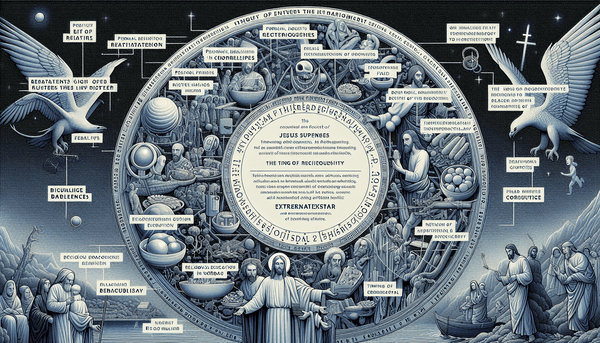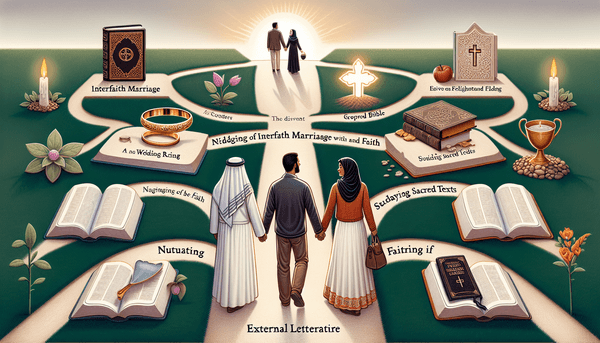Biblical Diet: What Jesus Ate and Its Significance
Throughout the gospels, we find references to Jesus partaking in common foods of his time, which carry cultural and spiritual symbolism. He observed the Passover meal with his disciples, an event that foreshadowed his own sacrifice (Mark 14:12-26). The multiplication of loaves and fishes not only showcases Jesus' miraculous provision but also his compassion for the physical needs of the crowd (Matthew 14:13-21). The act of breaking bread with tax collectors and sinners (Matthew 9:10-13) and the post-resurrection meals of bread and fish (Luke 24:30, 42-43) further emphasize the communal and inclusive nature of Jesus' ministry, where meals served as a medium for fellowship and teaching.
Religion in the Nordic Countries: A Look at Faith in a Secular Region
The Nordic countries, known for their secular leanings, present an interesting landscape when it comes to religious demographics. Among these nations, some surveys suggest that certain regions may exhibit a stronger adherence to religious beliefs and practices. The impact of Christianity in these countries can often be seen in cultural traditions and historical institutions, despite the prevalence of secularism. The Bible encourages believers to reach out to all nations (Acts 17:22-28), to pray for all people (1 Timothy 2:1-4), and to declare God's glory among the nations (Psalm 96:3). These verses remind us of the diverse expressions of faith across the globe and the enduring presence of religious sentiment, even in largely secular societies.
The Timing of Biblical Events: The Crucifixion of Jesus
The crucifixion of Jesus is a pivotal event in Christian faith, and while the exact hour of Jesus' death is not specified, the Bible offers a timeframe. Darkness fell over the land from the sixth hour to the ninth hour (noon to 3 p.m.), during which Jesus was crucified (Matthew 27:45). This period of darkness symbolizes the weight of sin and the gravity of the moment. The gospels provide a harmonious account of this event (Mark 15:33-39, Luke 23:44-46, John 19:28-30), each emphasizing the significance of Jesus' sacrifice for humanity's redemption. The prophetic nature of this event is also echoed in the Old Testament (Amos 8:9).
Extraterrestrial Faith: Can Aliens Believe in Jesus?
The Bible does not explicitly address the existence of extraterrestrial life, focusing instead on God's relationship with humanity. Yet, the scriptures reveal a God who is the Creator of all things, suggesting that His love and salvation are boundless (John 3:16). Should life exist beyond our planet, the Bible's universal call to share the gospel 'to all creation' (Mark 16:15) raises thought-provoking questions about the reach of God's love and the redemptive work of Christ. The concept of God's self-revelation to all intelligent life forms aligns with the Christian understanding of a God who is both transcendent and immanently involved with His creation (Colossians 1:16, Romans 1:20).
Conclusion
Through this exploration of Biblical themes and their application to various aspects of life, it is evident that the teachings of scripture remain deeply intertwined with the human experience. From the complexities of interpersonal relationships to the conviviality of shared meals, the pursuit of righteousness, and the vastness of God's love, the Bible offers guidance and insight that transcend time and culture. As we reflect on these topics, we are reminded of the enduring relevance of Biblical wisdom and the invitation to delve deeper into the mysteries of faith, practice, and redemption.






